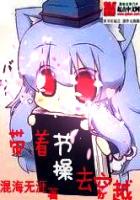There was an hour's interval before the third act, and the two drove back to their hotel to dine there. But Michael found his friend wholly unsympathetic with his chagrin. To him, it was quite clear, the disappointment of not having been able to attend very closely to the second act of Tristan was negligible compared to the cause that had occasioned it. It was possible for the ordinary mortal to see Tristan over and over again, but to converse with the Kaiser was a thing outside the range of the average man. And again in this interval, as during the act itself, Michael was bombarded with questions. What did the Kaiser say? Did he remember Ashbridge? Did Michael twice receive the iron grip? Did the All-highest say anything about the manoeuvres? Did he look tired, or was it only the light above his head that made him appear so haggard? Even his opinion about the opera was of interest. Did he express approval?
This was too much for Michael.
"My dear Hermann," he said, "we alluded very cautiously to the 'Song to Aegir' this morning, and delicately remarked that you had heard it once and I twice. How can you care what his opinion of this opera is?"Falbe shook his handsome head, and gesticulated with his fine hands.
"You don't understand," he said. "You have just been talking to him himself. I long to hear his every word and intonation. There is the personality, which to us means so much, in which is summed up all Germany. It is as if I had spoken to Rule Britannia herself. Would you not be interested? There is no one in the world who is to his country what the Kaiser is to us. When you told me he had stayed at Ashbridge I was thrilled, but I was ashamed lest you should think me snobbish, which indeed I am not.
But now I am past being ashamed."
He poured out a glass of wine and drank it with a "Hoch!""In his hand lies peace and war," he said. "It is as he pleases.
The Emperor and his Chancellor can make Germany do exactly what they choose, and if the Chancellor does not agree with the Emperor, the Emperor can appoint one who does. That is what it comes to;that is why he is as vast as Germany itself. The Reichstag but advises where he is concerned. Have you no imagination, Michael?
Europe lies in the hand that shook yours."Michael laughed.
"I suppose I must have no imagination," he said. "I don't picture it even now when you point it out."Falbe pointed an impressive forefinger.
"But for him," he said, "England and Germany would have been at each other's throats over the business at Agadir. He held the warhounds in leash--he, their master, who made them.""Oh, he made them, anyhow," said Michael.
"Naturally. It is his business to be ready for any attack on the part of those who are jealous at our power. The whole Fatherland is a sword in his hand, which he sheathes. It would long ago have leaped from the scabbard but for him.""Against whom?" asked Michael. "Who is the enemy?"Falbe hesitated.
"There is no enemy at present," he said, "but the enemy potentially is any who tries to thwart our peaceful expansion."Suddenly the whole subject tasted bitter to Michael. He recalled, instinctively, the Emperor's great curiosity to be informed on English topics by the ordinary Englishman with whom he had acquaintance.
"Oh, let's drop it," he said. "I really didn't come to Munich to talk politics, of which I know nothing whatever."Falbe nodded.
"That is what I have said to you before," he remarked. "You are the most happy-go-lucky of the nations. Did he speak of England?""Yes, of his beloved England," said Michael. "He was extremely cordial about our relations.""Good. I like that," said Falbe briskly.
"And he recommended me to spend two months in Berlin in the winter," added Michael, sliding off on to other topics.
Falbe smiled.
"I like that less," he said, "since that will mean you will not be in London.""But I didn't commit myself," said Michael, smiling back; "though Ican say 'beloved Germany' with equal sincerity."Falbe got up.
"I would wish that--that you were Kaiser of England," he said.
"God forbid!" said Michael. "I should not have time to play the piano."During the next day or two Michael often found himself chipping at the bed-rock, so to speak, of this conversation, and Falbe's revealed attitude towards his country and, in particular, towards its supreme head. It seemed to him a wonderful and an enviable thing that anyone could be so thoroughly English as Falbe certainly was in his ordinary, everyday life, and that yet, at the back of this there should lie so profound a patriotism towards another country, and so profound a reverence to its ruler. In his general outlook on life, his friend appeared to be entirely of one blood with himself, yet now on two or three occasions a chance spark had lit up this Teutonic beacon. To Michael this mixture of nationalities seemed to be a wonderful gift; it implied a widening of one's sympathies and outlook, a larger comprehension of life than was possible to any of undiluted blood.
For himself, like most young Englishmen of his day, he was not conscious of any tremendous sense of patriotism like this.
Somewhere, deep down in him, he supposed there might be a source, a well of English waters, which some explosion in his nature might cause to flood him entirely, but such an idea was purely hypothetical; he did not, in fact, look forward to such a bouleversement as being a possible contingency. But with Falbe it was different; quite a small cause, like the sight of the Rhine at Cologne, or a Bavarian village at sunset, or the fact of a friend having talked with the Emperor, was sufficient to make his innate patriotism find outlet in impassioned speech. He wondered vaguely whether Falbe's explanation of this--namely, that nationally the English were prosperous, comfortable and insouciant--was perhaps sound. It seemed that the notion was not wholly foundationless.















